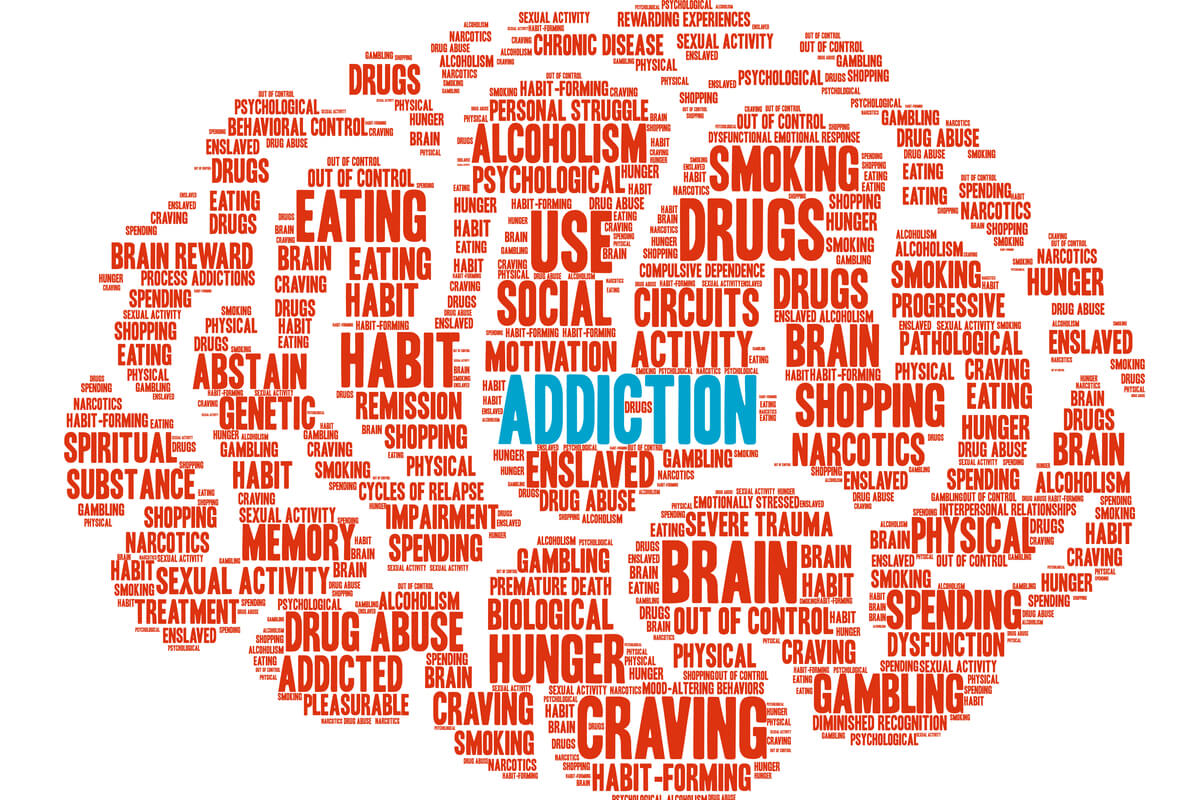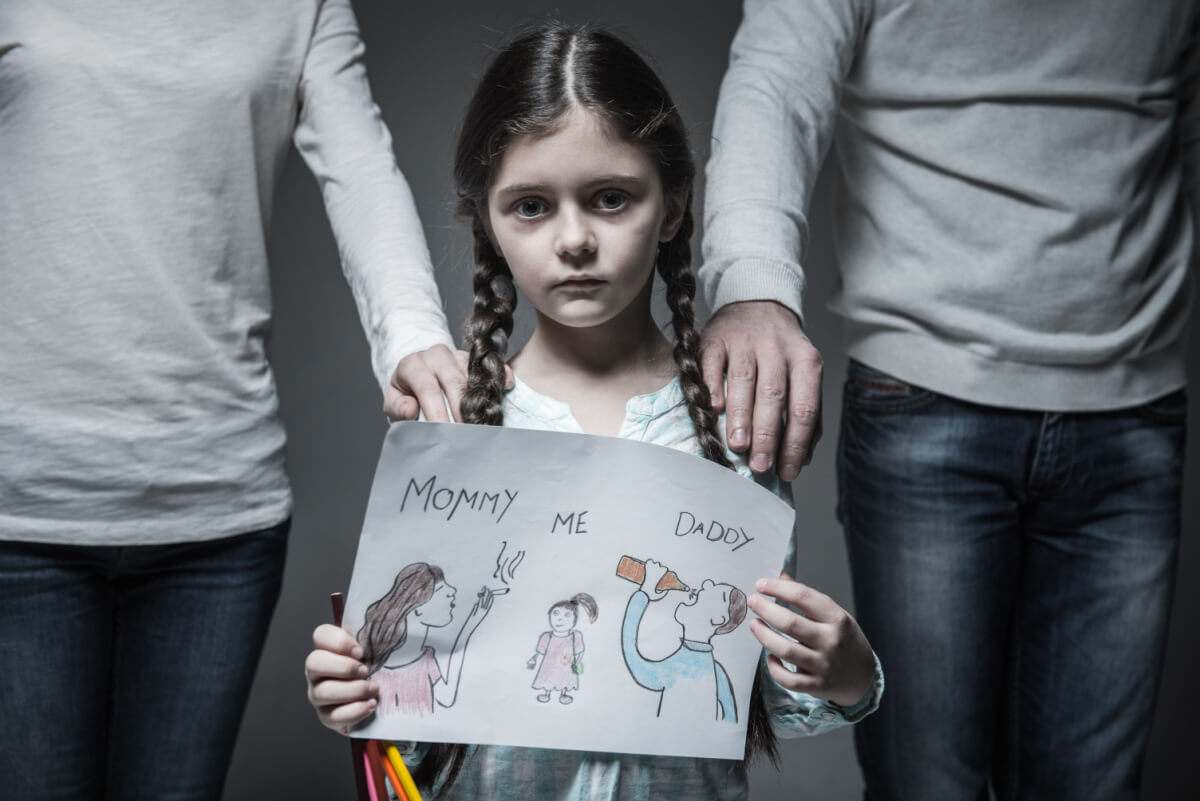
Living with an addict isn’t easy. Acknowledging that the person is struggling doesn’t erase the potential harm they can also do to your relationship.
While trying to find ways to cope with their potentially rough recovery journey can be a complex process, it’s an important one to learn about. Below, we’ve outlined different ways to cope when living with someone in recovery or struggling with a substance use disorder.
Understanding Addiction
If you have someone in your life who suffers from a substance use disorder (SUD), it’s important to try to understand what that means. Many people have misconceptions about addiction that can make relationships with people who have addiction difficult. [1]
Overcoming addiction isn’t just a matter of willpower. Drug addiction is a medical condition, where a person feels a compulsion to engage in drug use due to factors outside their control. Drug use can literally rewire key parts of the brain involved in decision-making. This can be helpful to bear in mind when someone you love is making decisions about their use that you perceive as irresponsible or otherwise incorrect.
Nobody wants to be addicted to substances. Many people begin using drugs as a way to cope with other parts of their life. They may start using at first as a way to deal with severe trauma or other stresses. However, once an addiction develops, however, people rarely use just to get “high”. Instead, they are using just to prevent the withdrawal symptoms and to feel “normal” so they can function day to day.
Starting to understand why patients with SUD behave the way they do can help you cope with their behavior and, if possible, be an asset to them in their recovery.
How Can Addiction Affect Relationships?
Addiction can be a major complication in a relationship, whether it is a romantic relationship, sibling, child or parent. Having a relationship with someone with a SUD forces you to balance your own needs with theirs. [2] Furthermore, patients struggling with addiction may encounter financial difficulties, loss of work, medical complications, violence or physical injury, or legal problems. This can make supporting someone with a SUD very difficult.
One study on how substance use disorders can affect families noted some common ways that addiction can impact members of the family, including these:[3]
- Unmet developmental needs
- Impaired attachment
- Economic hardship
- Legal problems
- Emotional distress
- Acts of violence
The study found children of adults with SUDs are at greater risk of developing an SUD themselves. It also noted the importance of a treatment plan that doesn’t just focus on the individual with SUD, but instead involves the whole family unit. This includes anyone that is part of a patient’s intimate social support network including friends or other household members. Families come in all shapes and sizes.
Tips for Living With Someone Who Misuses Substances
Understanding how to live with someone who misuses substances, and hopefully helping lead them to recovery, is hard. Here are some tips to help:
- Research some good ways to talk to your loved one about their addiction. Consider the language you use, and take care to choose your words carefully so as to express genuine concern with as little judgment or threats as possible. [4] Preparing for this conversation can be invaluable.
- Act promptly. Don’t delay these difficult but essential conversations. Addictions usually get worse and more complicated over time, and the situation rarely improves on its own. The sooner you start the conversation, the more likely it is that your loved one will get help before serious damage takes place.
- Learn to recognize the signs of drug use. Are you noticing behavior changes in your loved one? Personality and mood change? Changes in their ability to perform their various daily responsibilities? This can help you confirm your suspicions, warranting a conversation with the person.
- Research options for addiction treatment. There are many different strategies for getting treatment for substance use disorder, including both medications and psychotherapy. There are also a lot of settings in which care can be delivered: either in the outpatient or inpatient settings. A good place to start is by thinking about what might work well for your loved one and their particular circumstances, and maybe helping them think through what type and setting for treatment they would like to pursue.
The Importance of Boundaries
It’s important to learn to set healthy boundaries with an individual who is struggling with addiction. While the person will need your support to help them through their recovery, drug addiction doesn’t mean they get blanket permission to do whatever they want in the relationship, especially when it might harm you or others.
Remember that in order to take care of others, you have to take care of yourself first. This means setting boundaries.
Talk to the person struggling with addiction about some rules you need to put in place to feel safe and better help them recover. Establish consequences that will occur if they break those rules.
Often, boundaries can be split into roughly two groups. The first might be called “soft” rules, where you tell someone things you would like them to do or not do, but that aren’t so critically important that you necessarily need hard consequences if they don’t do them.
For example, you may tell them you don’t like when they make jokes that minimize how their drug use is affecting their health. It’s reasonable that this bothers you, but it also isn’t so destructive in most cases that you need real consequences for the person doing it, beyond maybe reminding them those jokes make you uncomfortable and worried.
“Hard” boundaries are rules you set that may carry serious consequences. For example, inviting strangers who use drugs over to the house or using drugs when watching children or other minors will be met with removal from the house, loss of financial support, etc.
Using a combination of soft and hard boundaries to set expectations can be essential in keeping both you and your loved one physically and emotionally safe during the treatment process.
The Bottom Line
If you are a caregiver or social support for someone with an OUD, reach out to your doctor, therapies, or us here at Bicycle health. There are a plethora of resources available not only for patients with SUD but for their friends, family and loved ones as well.

Medically Reviewed By Elena Hill, MD, MPH
Elena Hill, MD; MPH received her MD and Masters of Public Health degrees at Tufts Medical School and completed her family medicine residency at Boston Medical Center. She is currently an attending physician at Bronxcare Health Systems in the Bronx, NY where ... Read More
- Myths About Substance Use Disorders. Indian Health Services. https://www.ihs.gov/asap/patients/myths/. Accessed October 2022.
- Substance Abuse and Intimate Relationships. American Association for Marriage and Family Therapy. https://www.aamft.org/Consumer_Updates/Substance_Abuse_and_Intimate_Relationships.aspx. Accessed October 2022.
- The Impact of Substance Use Disorders on Families and Children: From Theory to Practice. Social Work in Public Health. https://www.ncbi.nlm.nih.gov/pmc/articles/PMC3725219/. July 2013. Accessed October 2022.
- Confronting Inadvertent Stigma and Pejorative Language in Addiction Scholarship: A Recognition and Response. Substance Abuse. https://www.ncbi.nlm.nih.gov/pmc/articles/PMC6042508/. July 2018. Accessed October 2022.
- How to Master Boundaries in Recovery. Psychology. https://www.psychologytoday.com/us/blog/addiction-recovery/202111/how-master-boundaries-in-recovery. November 2021. Accessed October 2022.
Download Our Free Program Guide
Learn about our program, its effectiveness and what to expect
Related articles
Imagine what’s possible on the other side of opioid use disorder.
Our science-backed approach boasts 95% of patients reporting no withdrawal symptoms at 7 days. We can help you achieve easier days and a happier future.









